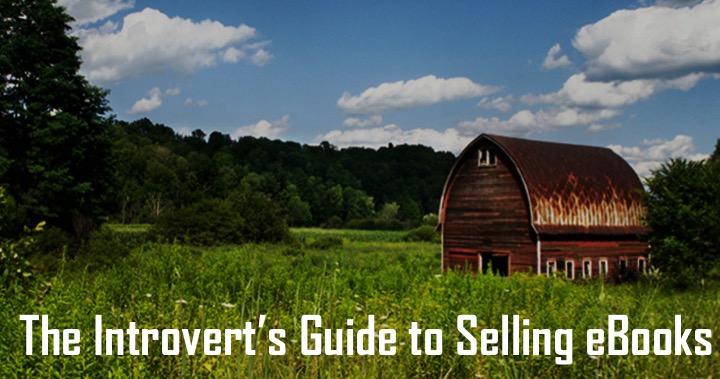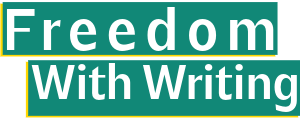
If you’re a writer, then you should seriously consider self publishing your first book. The reasons are numerous, as I discussed in a previous article. The bottom line: If you want to help your writing career, writing and publishing a book is one of the best things you can do.
That’s why I’ve recently written about how to write a book in one week, and how to set the right price for your book.
This article is all about how to sell your book, even if you are an introvert.
There is only one thing left to do and that is to sell your book! The downside for most people when it comes to self-publishing is the promotion of the book.
There are several different ways to do this and most of them are painless, even for an introvert like me!
Create a Buzz
The best way to create a buzz about your book is to start before the book is released. You want people to anticipate its publication as much as possible. Social media announcements, teaser paragraphs, interesting graphics or anything else you can dream up to get people thinking and talking about your book. One fun way is to do a countdown starting 10 days before your book releases.
Take advantage of Site Sponsored Programs
Amazon has great programs for promoting your book. Take advantage of those, especially with your first book, to get your name out there. These programs will market your book, offer it at a discount and so on, depending on which program you select. These are designed to sell as many books as possible. Amazon wants you to succeed, so be sure to take advantage of the resources they offer.
Create a Facebook Page
A writer should have at least two Facebook pages; their personal page and their writer page. Ideally these two pages never meet each other. Fiction writers will often create an additional page for their book or the lead character in a new series. These pages take very little time to create and keep updated but will help expand your book sales by making you more approachable and giving people a chance to get to know the author.
Hit the Major Social Media Outlets
If you don’t already have a LinkedIn, Facebook and Twitter account…well shame on you! These are huge marketing tools and you want to tap into them. Create buzz and keep it going on Twitter. With Facebook, you want to promote your book on your writer’s page, the page you created for the book itself, and on your personal page.
The psychology behind this is very basic in that people want to read books written by people they know. This is true even if they only know you in a virtual sense. How they respond to the information is often dictated by the platform in which they are responding.
One important note about social media and that is that everyone seems to have a favorite. While just about everyone has a Facebook and Twitter account, whether or not they use them is an entirely different matter. Some people live on Twitter. Others never seem to be without their Facebook app open. What people use the most and that which they are the most comfortable with will differ between groups of people. You want to reach as wide of an audience as possible and that means being as diverse as possible with your social media marketing.
Here is where there is the most give and take. This is also the most real of the sites in that it seems more personal than Twitter. You want to promote the book but not overdo it on your personal page. Post status updates along the lines of “I just finished my book, keeping fingers crossed that people like it!” Or “What do you think of my cover art?”
You can go all out on your writer page and/or the page you create for the book itself. That is what the page is for and what people expect.
Feel free to jabber on at will on Twitter, everyone else does. Status updates can be fun though if you create a Twitter feed for your fictional character and let them do the tweeting. For non-fiction, share tweets with relevant groups of people, specifically those who might be interested in your book.
This is a bit tricky. You want to promote your book but you don’t want to be unprofessional about it. The best idea here is to add it to your profile, and make a few comments about it.
Tumblr
Over the past couple of years this has become the go-to blogging site. It’s a great place to promote your book, network with graphic designer and gain a loyal following. This is a great site for a writer’s blog and you can easily promote your book from within this blog.
Goodreads
This might not seem like a social media site to you but it is and it’s a very important one for writers. This is the ultimate readers website where they can create a virtual bookshelf, join groups of like-minded readers and often chat with authors. That is where you come in to the picture. You do not have to be Stephen King to generate interest on this site. There are frequent author chats, giveaways and there are even book clubs devoted to indie writers! Sign up for an account and take a look around. This is a great place for writers to not just meet their public but to create an entire reader base.
Create a Teaser Book
This is a great idea for fiction writers. A short prequel to the main attraction is a great way to both create a buzz and to really hook your readers. One popular way to do this is publish both at the same time and then take advantage of the site sponsored programs for the teaser book. Reduced or even free prices for the prequel with the ability to immediately buy the main book will let readers continue immediately with the story. Many people will buy the main book just because they need to know what happens next.
Bonus Tip: Create a website devoted to the book
This is particularly useful and fun for those who write serial fiction. Create a website devoted entirely to the series. This can be done several ways.
- From the point of view of the main character
- From the point of view of the protagonist
- As a narrator
Just to name a few. With each of these points you can offer insight into the minds of the characters that is not covered in the books.
As the main character, you could write it as his or her blog or create it much like an online diary. You can even address events in the book and what he or she really thinks. Design the site with the character in mind and even consider including artwork and graphics.
As the protagonist you can delve into their mind in a way that the books make difficult. Again, consider treating the character as though he or she is a living breathing person and include the things on the site that the character would include.
When creating the web page as the narrator you can opt to discuss character profiles, the town, landmarks or whatever else applies. You can cover it as though you are a journalist and writing for the town newspaper.
There are plenty of ways to do this but the main point is to sell more eBooks. This works with fiction because it allows the reader to become invested in the character in a more personal way. They can almost become friends of the characters. Of course they are going to read the next book, after all they need to know what happens with their friend!
